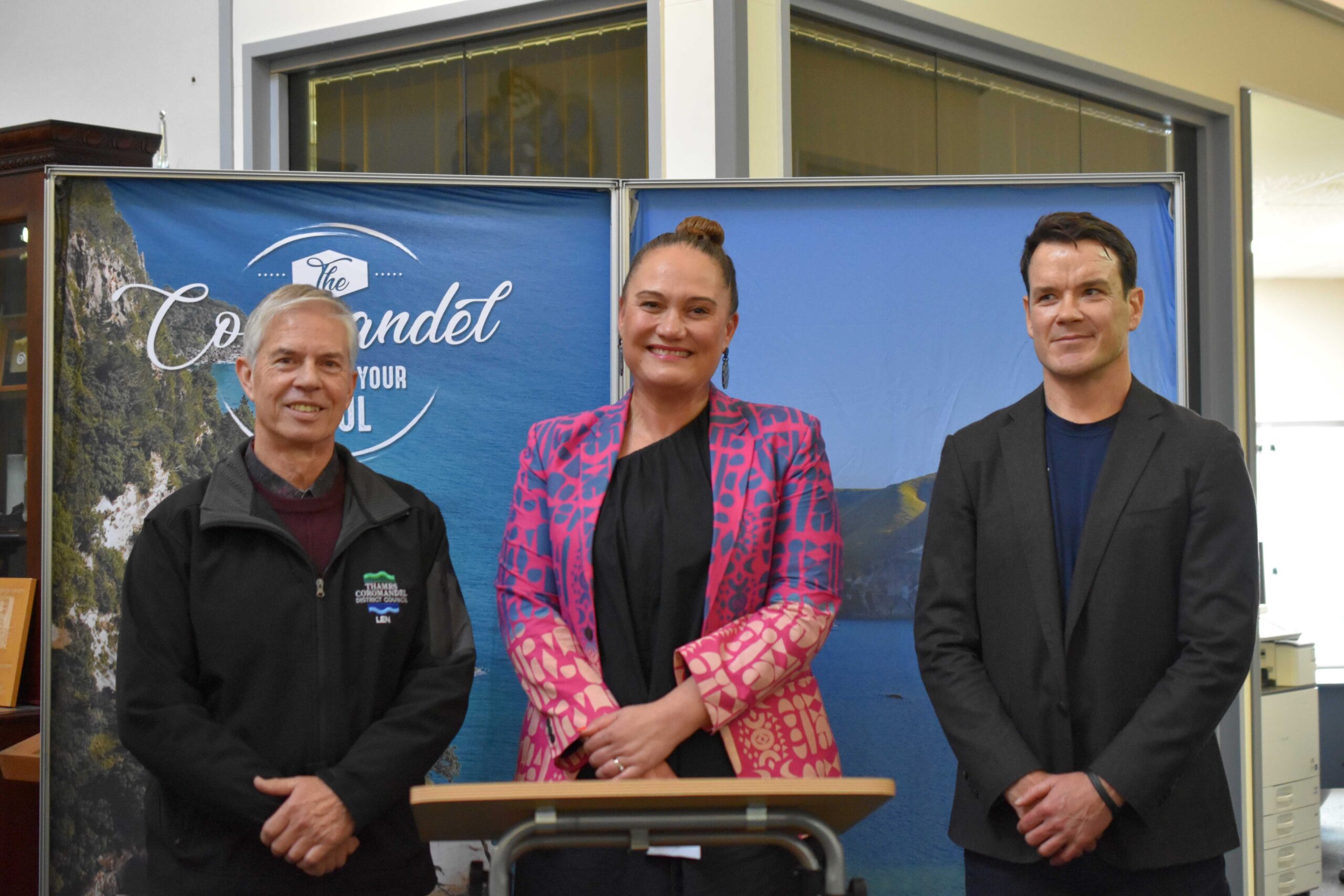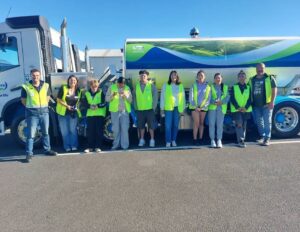Mental health, resilience and tourism were the main focuses of an announcement revealing extra government funding for communities affected by cyclone Gabrielle.
Minister for social development and employment Carmel Sepuloni held press conferences in Thames on July 18 announcing two funding packages.
The first was a $200,000 cyclone recovery grant for Thames Coromandel District Council, which will be used by Destination Hauraki Coromandel for tourism promotion. The second was a $30 million social sector recovery plan, for weather-affected communities across New Zealand.
Minister Sepuloni said the funding would go towards mental health services, education catch-up programmes, volunteer wellbeing and support, and the improvement of infrastructure resilience in cyclone-affected areas, including the Coromandel.

The $200,000 grant is aimed at bringing visitors to the Coromandel following several rough seasons for tourism operators.
In June this year, electronic card transactions in Thames Coromandel were down 22.6 per cent compared to June 2022, the council said, with a similar drop in May. The drop in spending was the highest for any tourism region in New Zealand.
“Consumer perception and road access issues are contributing factors,” the minister said.
“We are … trying to promote this area and trying to encourage people to come back in over the summer.
“The perception is that it’s completely shut down when it’s not, there are ways of getting around. And for the economy and general wellbeing of this area you need people to start returning.”
The social sector recovery plan was announced at Ngāti Maru Ruranga, an acknowledgement of the organisation’s work in the social sector to provide support to those affected by the storms. The group was part of the Civil Defence response to the cyclones, liaising with local marae to provide shelters.
“We did try to get in there quickly with support for iwi organisations and social service organisations and mental health organisations right at the beginning, but that was the immediate response,” minister Sepuloni said.
“We had to have a longer term response … people are still experiencing the psycho-social impacts of what the weather events brought.”
The package will cover the next two years, with $20.65 million being spent in the first round. The minister said she was keen to get the money out the door as soon as possible.
“I think it’s fair to say that some lessons have been learnt off the back of things like Canterbury and the earthquakes, and it’s all good to be responsive at the time but you also need a plan moving forward,” she said.
“Often it is only the infrastructure side of things that is taken into consideration, but the wellbeing of people is really important in the process too.”
Ngāti Maru Ruranga chairperson Wāti Ngamane said the organisation was seeing many families giving up on education and struggling with other issues in the wake of events such as Covid and the storms, and was pleased to see some support from the government for the groups providing outreach programmes.
“We’re not doing it for accolades, we’re doing it to fulfil the need that’s there. And it’s huge,” he said.
“It’s about having some certainty around what we’re doing. It’s not going to stop us doing it, [but] while we can access the resources to carry it out we will do that.”
Social recovery plan: what’s included
- $3m to build optimism and increase resilience, such as through local events
- $1.5m support for those affected by land zoning changes
- $5m programmes for Māori and Pacific students to catch up on lost education
- $8.5m for iwi and community groups to increase infrastructure and preparedness for future events
- $1.5m wellbeing support for volunteers
- $0.5m for providers supporting migrants from affected areas
- $0.15m for mental health training for providers
- $0.5m accessibility services including translation and interpreters
By ALICE PARMINTER, Public Interest Journalism funded by NZ on Air





